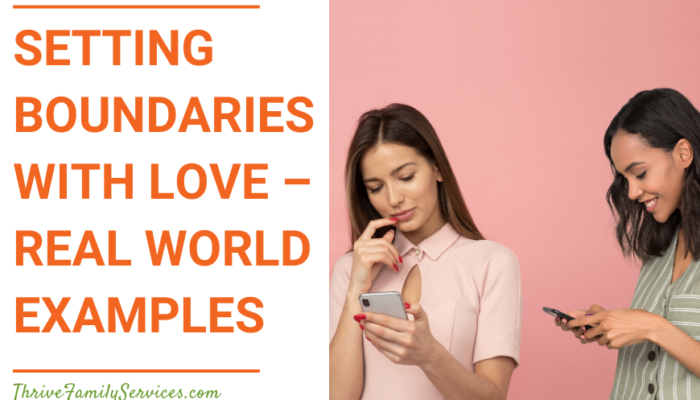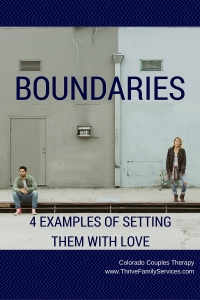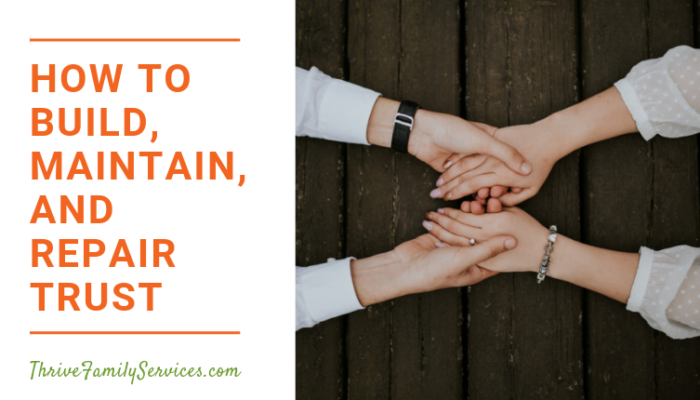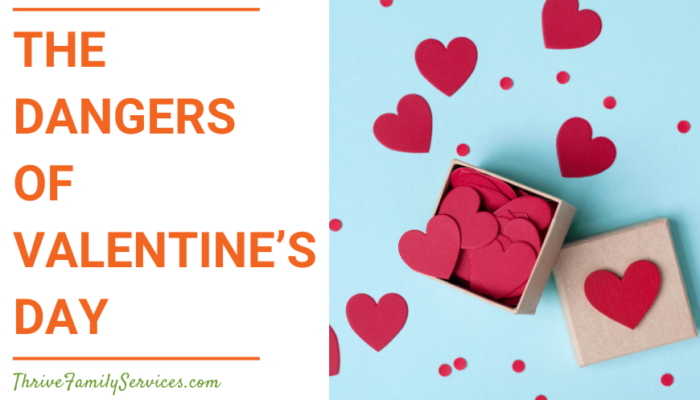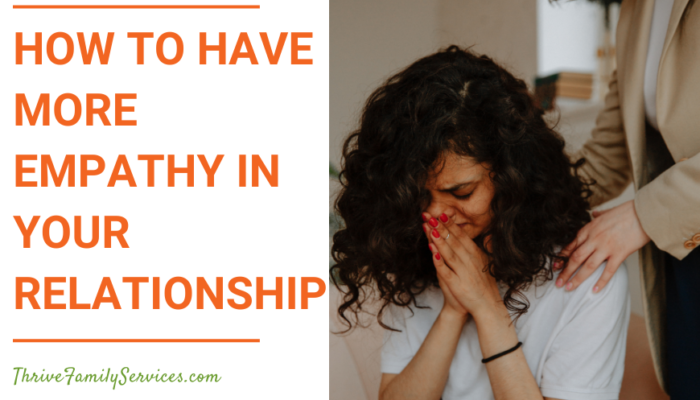Setting Boundaries without messing up your relationship
Last post, we defined how to set boundaries without being too rigid or too loose. We also talked about the importance of delivery – how you talk to your partner about boundaries.
Do your attempts to set boundaries:
- start a fight?
- invite a defensive response?
- shut your partner down?
- sound critical or blaming?
If so, you may need to work on your delivery.
You never want to work up the courage to say something and have it go poorly, or, to hold in your feelings and then find yourself blowing up in an argument.
Here are four common scenarios where setting boundaries (with love) can lead to better relationships.
1. You feel taken advantage of
“I feel taken advantage of. She doesn’t appreciate what I do”
The feeling of not being appreciated by the most important person in your life is scary! It also hurts!
But, how can you share these feelings and concerns in a way that doesn’t start a fight? Instead, how do you share it so your partner wants to show you appreciation and love?
The tendency for lots of people is to stuff these kinds of concerns.
Which is bad.
Bad because most of us then explode.
It might go something like this: “Tim” worries “Becky” doesn’t appreciate him. He fears if he tells her, she might just criticize him again and discount all he does.
Perhaps she has criticized him before, so there’s good reason for Tim to feel cautious. Tim’s hurt feelings and resentment begin to build on the inside. Then, he blows out, blasting Becky with accusations about how she doesn’t appreciate him.
When he comes out fighting to be heard, Becky will not hear his protests as an invitation for closeness.
To her, it just sounds like anger and accusation, which starts an argument. In this negative pattern, Becky may react by pulling away, shutting down, or getting angry and defensive. His worst fears are then confirmed by her reaction. Together, they have just formed a very common negative relationship pattern.
Check Your Perceptions
What we often learn in couples therapy is that couples get stuck because they are reacting based on their perceptions.
Tim has a perception that Becky doesn’t appreciate him.
It is very likely that Becky would see this very differently. Instead, what is very important here is that Tim has fears and hurt because of how things seem to him (his perception).
If Tim and Becky were in our office for Emotionally Focused Couple Therapy, we would help Tim talk about his fears and hurt from a more vulnerable place, in tune with his emotions.
That might eventually sound something like, “I just want to be appreciated and cared for in this relationship. When I don’t feel that way, it hurts my feelings and I get scared that I don’t matter to you. I react by yelling and telling you that you don’t appreciate and take advantage of me. I know this doesn’t feel good to you, and you get defensive.”
Contrast this with Tim blasting Becky with “You don’t appreciate anything I do!”
2. You have lost your voice
Greg says, “I feel invisible to Jeff. He’s consumed with work and my feelings don’t matter to him.”
What are the feelings?
Greg is most likely hurt and lonely! When he sees Jeff working all the time and seemingly unaware that Greg is hurt, it makes sense that Greg concludes he doesn’t matter to Jeff.
How can Greg set a boundary and share his feelings without being aggressive? In a way that invites Jeff to be close to him?
Separate the feelings from the perception
If Greg can get at his feelings – hurt and lonely – and share those, Jeff is much more likely to respond positively. Instead, what many of us do is share the perception and rigidly try to control behavior when setting boundaries.
Perhaps Jeff might surprise Greg with his own underlying fears – “I have been really worried you would judge me since I took this lower paying job. I thought you were thinking less of me.”
When feelings are shared gently (and don’t include our perceptions or judgments), we are much more likely to get positive responses.
3. You suffer from anxiety or depression
Anxiety and depression often result when something is off balance. We are interconnected as humans. When your valued relationships are struggling- it can impact every area of your life, including symptoms of anxiety and depression.
Anxiety:
It is understandable to feel hurt, angry, or fearful when your relationship struggles. When things aren’t going well, anxiety increases.
In an attempt to manage this uncomfortable anxiety, you may set boundaries too loosely or too rigidly. This can result in a negative cycle with your partner where your underlying needs are not being met.
This is an opportunity to express these feelings to your partner from a vulnerable place:
Jen might say to Mike, “I have felt so distant from you. That makes me really anxious about our relationship.”
This is very different from the criticism Jen may have delivered before like, “I can’t trust you,” or, “You don’t love me!”
Depression:
Similar to anxiety, you feel depressed when you are discouraged about improving things with your partner. You can also feel depressed when it seems you don’t matter to your partner.
If you have felt sad about things in your relationship, how have you typically shared those feelings?
If you have struggled with depression, have you explored what parts of that depression connects to the state of your relationship.
4. You struggle with low self-esteem
To be in a love relationship is to be vulnerable. We get vulnerable when we share our heart- and when we do that- it is scary and may trigger thoughts and beliefs of “not being enough.”
Then what do many of us do with this “not enough” feeling of shame? Hide it.
In relationships, you form a view of self, your partner, and your relationship. If your view is negative, you may feel “small” or “not good enough.” This type of low self-confidence is shame.
We call shame a disconnecting emotion. Shame blocks you from sharing your fear, feelings and deepest longings with your partner.
Is shame stopping you from setting boundaries in your relationship?
When your self-esteem is low, you might cope by not setting boundaries, or by withdrawing from your partner because of the internal shame you feel.
We help people work up the courage to (gently) share these feelings in therapy. When you can share those deepest feelings, you overcome the toxic nature of shame.
Setting Boundaries with love leads to great relationships!
It is possible to have a loving relationship where you feel empowered to communicate your needs and honor your feelings, saying no and setting boundaries when you need to. In turn, your partner is likely to do the same- resulting in a renewed, healthy relationship.
We know from research that people in secure relationships are happier, more accomplished and healthier. Setting boundaries with love builds that security in your relationship.
Need a couples counselor in Denver Tech Center area? We’d love to hear from you!
Call us at 303-513-8975. Or, you can use our online scheduler to book your appointment now.
Don’t want to miss our next post with great tips for your relationship? We don’t blame you! Sign up here.

